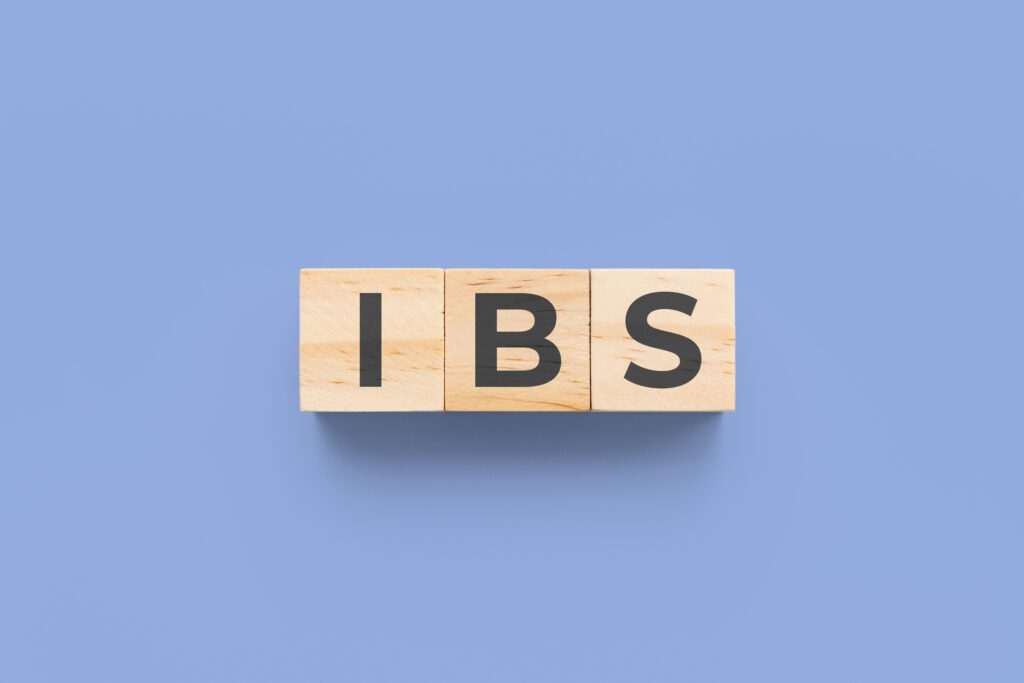
Nutrition for IBS – and so much more
Last month, I spent a busy few days at the Best Practice Birmingham Exhibition at the NEC, working on the British Association for Nutrition and Lifestyle Medicine (BANT) stand. My colleagues and I were delighted to engage in lively discussion with GPs, consultants and GP practice managers regarding nutritional therapy and its role in preventative health and chronic disease management. This blog discusses nutrition for IBS – and so much more.

There were a couple of things that stood out for me at the exhibition.
Nutrition for IBS – and so much more
Firstly, it was the number of conversations we had with GPs about IBS and other digestive issues. The perception seems to be that this is the only area where nutrition professionals work. Now don’t get me wrong – I work routinely with individuals who have received a diagnosis of IBS from their GP. I get good results too, with many clients seeing a reduction or elimination of bloating, cramping, pain, acid reflux, nausea, constipation and diarrhoea over 3-6 months of working together.
Nutrition beyond IBS – the side ‘benefits
But the impacts of good nutrition go well beyond the digestive tract. These same IBS clients report easy weight loss (if this is required), more energy, brighter mood, clearer skin, stronger nails. Good nutrition is much more than slowing down or speeding up your digestion. It can be useful as the foundations for health and for many health conditions.
IBS clients report easy weight loss (if this is required), more energy, brighter mood, clearer skin, stronger nails
GPs IBS Toolbox – what has it got?
The other reasonthat GPs speak to us about IBS, is that they have limited tricks in their box to employ. I encourage all my clients with disordered digestion to see their GP if they have not already done so. GPs know how to assess and rule out other diagnosable digestive issues. In other words, GPs are able to diagnose what is going on, which Nutritional Therapists are not trained to do. But when all the digestive tests come back clear and it is ‘just IBS’, the frustration kicks in for both doctor and patient. Other than suggesting peppermint capsules for bloating and perhaps Mebeverine for cramping and pain, GPs have little to offer. So they end up at our stand – and their patients in our private clinics – wondering what we we can do. (Read here for my blog on why I think nutritional therapists should be available to all in NHS Primary Care).
Personalised Nutrition for IBS

There is plenty of science behind the impacts of personalised diet, lifestyle change and short-term supplementation in relation to IBS resolution. It may take time to work out what is going on. It certainly takes effort on behalf of the individual. But individualising diet and lifestyle can lead to resolution of all IBS symptoms. However, the question is, what if there was a cocktail of drugs available to GPs for IBS? Would they be at our stand talking to us? Sadly, I don’t think so.
Our healthcare is structured in such a way that, if there is a diagnosis and a pill exists, patients passively swallow it. The problem continues to be ‘feed’ with poor dietary choices, but symptoms are now masked, side effects accepted, and the lovely side benefits listed above never experienced.
Our healthcare is structured in such a way that, if there is a diagnosis and a pill exists, patients passively swallow it
Referrals for Nutrition for IBS
It is my opinion that GPs should be referring ALL their IBS patients for nutritional assessment and recommendations to nutritional therapists. Currently, this is only available to those who can pay privately. However, the more people who ‘fix’ their IBS in the private clinics up and down the country, the greater the chance that policy makers will sit up and take notice.
The Lure of Junk Food
The second thing that struck me at Best Practice Birmingham, was the number of stands that used food to lure customers in. And not just any food lure – these were junk food lures. Heavily iced cup cakes, gummies, cheap chocolates, mini pots of ice cream. I’d hazard a guess that upwards of 40% of the stands employed this tactic. And it worked! We saw attendees walking around at 9am scooping ice cream into their mouths. Now bear in mind that this was a HEALTH exhibition attended by NHS staff. I’m no purist when it comes to food – I love a bit of ice cream – but not for BREAKFAST and not when I have a busy work day ahead.

I am not a conspiracy theorist but the sights I saw at this exhibition made me wonder. Do the pharmaceutical companies want to keep us sick so they can keep selling their drugs? Given the prevalence of diet and lifestyle driven ill health in the UK, it would be easy to think along those lines. I’m too much of an optimist to believe that to be the case, but deliberate or otherwise, this is what big Pharma are doing. When a company providing health services for diabetes has Haribos on their stand, something has gone far wrong.
Optimise your nutrition for IBS
Optimising nutrition has impacts far beyond the gut. It WORKS for modifiable lifestyle conditions such as diabetes, raised cholesterol, high blood pressure, obesity, chronic pain and more. Just because there is a pill available, doesn’t mean this is where you should put all your effort. Medications can be great – and in some cases essential – but food should be an integral part of every ill-health situation.
As soon as I had finished at Best Practice Birmingham, I headed to London to attend the Nutritional Medicine Institute’s 2023 Summit. You always know when you are getting close to a venue hosting such an event. Faces around you contain bright and clear eyes, the steps taken are energetic and the good mornings warm and welcoming. Nutritional therapists walk their talk. And a large portion have a history of one form of chronic ill health or other, improved or resolved by optimising their own diet and lifestyle. These are the nutrition professionals who are the healthcare providers of the future.
If you would like to know more about how changing your diet and lifestyle can work for IBS – and other conditions, please get in touch. I work routinely with people with chronic digestive and pain conditions and would be happy to talk you through the process. If you suffer with constipation, have a look here. If you suffer with chronic pain and IBS, check this out. Or just book a call!
